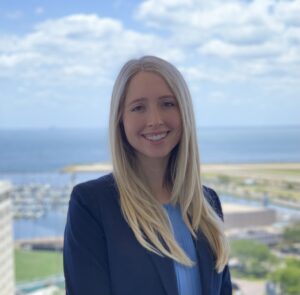- DUI
- Criminal Defense
- Florida DUI
- Traffic Offenses
- Drug Charges
- Marijuana Charges
- Violent Crimes
- Domestic Violence
- Temporary Injunctions
- Weapons Charges
- Theft Crimes
- White Collar Crime
- Juvenile Offenses
- Sex Crimes
- Violation of Probation
- Early Termination of Probation
- Seal or Expunge Criminal Record
- Criminal Appeals
- US Federal Offenses
- Misdemeanor Charges
- Felony Charges
- Co-Defendant Cases
- College Student Defense
- College Student Hearings
- FSU Students
- FAMU Students
- Florida Panhandle Arrests
- Extradition to Florida
- Bench Warrants / Warrants
- Emergency Bond Hearings
- Gambling Charges
- Drone Arrests
- Marsy’s Law
- UAS Infractions
- Introduction of Contraband
- Lying to Police
- Locations
- Case Results
- Our Firm
- Media
- Resources
- Blog
- Contact Us
How COVID-19 Affects Florida’s Speedy Trial Rules
June 8, 2021 Don Pumphrey, Jr. Criminal Defense Social Share
The COVID-19 pandemic has impacted the lives of many, including how criminal trials are conducted. If you are charged with a crime, contact a criminal defense lawyer to understand your rights and what to expect from the court process during the pandemic. Don Pumphrey is a trusted criminal defense attorney in Tallahassee that can help you navigate this everchanging process. Contact Pumphrey Law today at (850) 681-7777 or send an online message for a free consultation.
Florida’s Speedy Trial Rules Under Normal Circumstances
A criminal defendant in Florida has the constitutional guarantee of a speedy trial under the Sixth Amendment of the United States Constitution and the Florida Constitution. Defendants charged with a misdemeanor are entitled to a trial within ninety days after they have been taken into custody, while defendants charged with a felony are entitled to a trial within 175 days after they have been taken into custody. Under normal circumstances, a defendant who desires to obtain a trial sooner has the right to a trial within sixty days by filing a demand for a speedy trial. If the defendant is not brought to trial within this period, and the delay was not attributable to the defendant, the court must schedule a trial within ten days. This is known as the recapture period. If the trial does not occur within this period, the defendant may be entitled to dismissal and discharge.
Florida’s COVID-19 Speedy Trial Rules
The right to a speedy trial is firmly protected. This right, however, can be extended or tolled for several reasons, including unavoidable absences, illness, or incapacity of a person needed for trial. Two reasons are particularly relevant to the COVID-19 pandemic. First, a court can extend the standard timeline if defendants and essential witnesses are not available. The pandemic makes it increasingly likely that parties will struggle to procure witnesses as people may fall ill or are avoiding larger gatherings. Second, the timeline can be modified if it “serves the ends of justice.” During the pandemic, avoiding public gatherings can serve the health needs of everyone involved in a trial.
In March of 2020, the Florida Supreme Court suspended speedy trial procedures in response to the pandemic. Since then, the Court has issued several Administrative Orders altering emergency trial measures in response to the pandemic’s changing status. As of June 4, 2021, all time periods involving speedy trial procedures in criminal court proceedings will remain suspended until October 4, 2021 for people who were taken into custody before March 14, 2020. For people who were taken into custody on or after March 14, 2020, speedy trial procedures will remain suspended until January 3, 2022. When the speedy trial rules are reinstated, any time accumulated during the suspension will be subtracted from the time periods provided by the standard speedy trial rules. If the defendant is not brought to trial within this period, the standard ten-day period to go to trial has been increased to thirty days. Courts are authorized to order an extension of the time periods for exceptional circumstances, including congestion of the court’s docket, a lack of courtroom space, unavailability of jurors, or a shortage of public defenders, state attorneys, or clerks of court.
Ultimately, the government still has the responsibility to ensure that all criminal defendants receive a speedy trial. Lengthy continuances are not appropriate when COVID-19 is not largely to blame for the delay or when the delay is a scapegoat for a lack of diligence.
When the speedy trial rules are reinstated within a circuit or county, any time accumulated during the suspension will be subtracted from the time periods provided by the standard speedy trial rules. If the defendant is not brought to trial within this period, the standard ten-day period to go to trial has been increased to thirty days until the circuit or county has transitioned to Phase 4. Phase 4 will occur when COVID-19 no longer presents a significant health risk to public health and safety.
Ultimately, the government still has the responsibility to ensure that all criminal defendants receive a speedy trial. Lengthy continuances are not appropriate when COVID-19 is not largely to blame for the delay or when the delay is a scapegoat for a lack of diligence.
This Article was Written by Caroline Calavan











